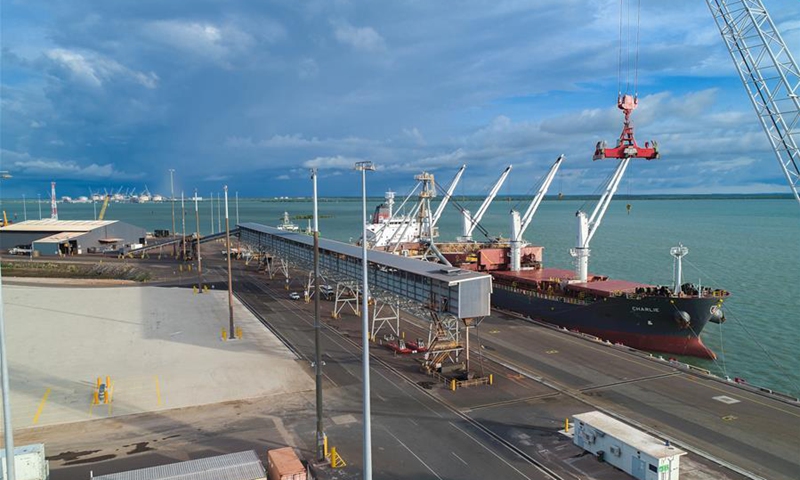You are using an out of date browser. It may not display this or other websites correctly.
You should upgrade or use an alternative browser.
You should upgrade or use an alternative browser.
Chinese Economics Thread
- Thread starter Norfolk
- Start date
This bad...
The Supapowa will absolutely displace China by March 2024.
Manufacturing has supposedly been 'fleeing' China for 4-5 years now, yet every year China posts record industrial production and FDI numbers. Surely, Peter Zeihan, WION and Radio Free Asia can't be lying to me, can they? Why would someone do that? Just go on the internet and tell lies???
Actually I think the Nikkei article makes some very good points. It's basically saying that even when it comes to lower-end manufacturing China's higher labor costs are offset by its much superior infrastructure, supply chains, and industrial base which makes materials and shipping much cheaper in comparison with India and other SEA nations.
Meanwhile China is rapidly rising up the value chain. I seriously doubt that India and SEA countries can break into high-end manufacturing. In fact, if you look at R&D, India and SEA nations are headed the way of Mexico (i.e. middle-income trap) rather than China/SKorea path.
Meanwhile China is rapidly rising up the value chain. I seriously doubt that India and SEA countries can break into high-end manufacturing. In fact, if you look at R&D, India and SEA nations are headed the way of Mexico (i.e. middle-income trap) rather than China/SKorea path.
Vietnam seems to have a bright future but it's still too early to tell. They look like the most promising prospect of ASEAN, bar Singapore. Singapore has made it already.Actually I think the Nikkei article makes some very good points. It's basically saying that even when it comes to lower-end manufacturing China's higher labor costs are offset by its much superior infrastructure, supply chains, and industrial base which makes materials and shipping much cheaper in comparison with India and other SEA nations.
Meanwhile China is rapidly rising up the value chain. I seriously doubt that India and SEA countries can break into high-end manufacturing. In fact, if you look at R&D, India and SEA nations are headed the way of Mexico (i.e. middle-income trap) rather than China/SKorea path.
Minor correction - it is not a Nikkei article, they just reposted Chinese Caixin.Actually I think the Nikkei article makes some very good points. It's basically saying that even when it comes to lower-end manufacturing China's higher labor costs are offset by its much superior infrastructure, supply chains, and industrial base which makes materials and shipping much cheaper in comparison with India and other SEA nations.
Meanwhile China is rapidly rising up the value chain. I seriously doubt that India and SEA countries can break into high-end manufacturing. In fact, if you look at R&D, India and SEA nations are headed the way of Mexico (i.e. middle-income trap) rather than China/SKorea path.
The problem of Vietnam is its population is in between Japan and South Korea. So while I think it has great prospects it won't be able to replace China as a manufacturing power house. What I think will continue to happen is integration in industries between Vietnam, South Korea, Japan and China.
India like I said elsewhere is just too resource starved to have proper heavy industry. In particular it is highly energy deficient.
India like I said elsewhere is just too resource starved to have proper heavy industry. In particular it is highly energy deficient.
The problem of Vietnam is its population is in between Japan and South Korea. So while I think it has great prospects it won't be able to replace China as a manufacturing power house. What I think will continue to happen is integration in industries between Vietnam, South Korea, Japan and China.
India like I said elsewhere is just too resource starved to have proper heavy industry. In particular it is highly energy deficient.
Statistically speaking, Vietnam is equivalent to a medium-sized province of China.
South Korea and Japan are heading in the same direction as China keeps growing.
I don't see how Vietnam, Japan and South Korea can avoid their economies revolving around China.
And a wealthy, technologically sophisticated China will command grudging respect at a minimum.
GT investigates: ‘There are many options other than Australia’ – Chinese firms on why they ‘abandon’ market
Hostile business environment turns investors away
By GT staff reporters Published: Jun 29, 2022 10:29 PM

Photo taken on March 14, 2017 shows a bird's eye view of Darwin Port's cargo wharf in Australia. Photo: Xinhua
A recent industry report showing sharp drop of Chinese investment in Australia has led certain Australian media outlet to declare that Chinese investors were "fast abandoning Australia" and were "flocking to Europe and countries" along the Belt and Road Initiative (BRI).
Many Australian media reports about the declining Chinese investment in the country tend to attribute the trend only to diplomatic tensions between the two countries in recent years, while refraining from explaining exactly why Chinese investors are leaving the country.
In interviews with the Global Times, several Chinese business representatives describe an increasingly hostile and discriminatory business environment in Australia evidenced by excessive regulatory scrutiny of Chinese investments as well as growing anti-China sentiment in the broader Australian society. Under such an environment, some clearly stated that "there are many options in the world other than Australia" and they would not "put all eggs in one basket."
In an example of excessive regulatory security of Chinese businesses by Australian authorities, a representative of a major listed Chinese firm in Australia told the Global Times that Australia's Foreign Investment Review Board (FIRB) has asked the company to submit some information that involved personal privacy or business secrets.
The FIRB required the company to provide complete and traceable proof of funds during filing, including legitimate sources of funds from all of the company's major shareholders, the representative said on the condition of anonymity.
"In the filing, a major shareholder's source of funds was listed as the sale of his own property, along with a contract for the sale and bank transfer records. However, the FIRB then asked us to provide legal sources of funds for the shareholder's purchase, which went back more than a decade and was hard to find," said the representative, adding that the company eventually gave up on investing in Australia.
"For Chinese companies going overseas, there are many options to choose other than putting all eggs in one basket with Australia," the representative said with obvious frustration.
That frustration is apparently common among Chinese firms in Australia. In 2021, Chinese investment in Australia declined by 69 percent from A$2.5 billion ($1.9 billion) in 2020 to A$800 million, falling to its lowest level in the past 15 years since 2007, according to a report by KPMG and the University of Sydney released in April.
Chinese investment has been diverted from countries such as the US and Australia to the EU and countries involved in the China-proposed BRI, the report said.
Chinese official data also point to a growing trend of Chinese investment along the BRI and Europe. The flows and stocks of China's outbound direct investment (ODI) remain among the world's top three in 2021. Of China's total ODI in 2021, 936.69 billion yuan ($145.19 billion), 14.8 percent flocked to countries involved in BRI, and Chinese investment in Europe grew by about 25 percent year-on-year, official data showed.
In a clear indication of the shift of Chinese investments away from Australia, a Chinese wine trader told the Global Times that his company's previous investment in Australian wine imports has been completely diverted to wines from Europe and South America amid growing difficulties in doing businesses with Australia.
Since mid-2017, Australia has been constantly undermining its relations with China, playing the role of a "pioneer" in the US' anti-China campaign. Chinese investments in Australia started a rapid decline in 2018, when the Australian government banned Huawei from participating in the country's 5G network construction citing "national security."
In line with the Australian government's hostile approach toward China, Australian public opinion toward China has also fallen sharply, according to the 2022 Lowy Institute poll published on late Tuesday, more indications of the increasingly hostile environment for Chinese businesses in the country.
The poll showed that 63 percent of Australians say China is "more of a security threat" to Australia in 2022, compared to 12 percent in 2018, while 33 percent say China is "more of an economic partner" to Australia, compared to 82 percent in 2018.
For Chinese investors, such a huge jump in hostility toward China means reconsidering business strategies.
A Chinese investor, who has been exporting wine and other food products from Australia for nearly 20 years, told the Global Times that many Chinese companies have put their investment intentions in Australia on hold, and investors are also taking a "wait-and-see" attitude.
"The new Australian government's attitude toward China is not clear. It sometimes makes positive statements, which are softer than the previous government's tone; However, the attitude of the Anthony Albanese administration on some matters of principle makes many Chinese investors feel disappointed and confused," the veteran investor said.
In addition to regulatory security and hostility, insiders from a number of Chinese companies said that the COVID-19 pandemic has also posed difficulties as Australia has long and repeatedly been in a state of border closure and internal lockdowns.
Chinese investors, who are not Australian citizens or permanent residents, were unable to obtain visas for business visits to Australia, let alone reaching investment agreements worth millions or even billions of dollars, they said.

